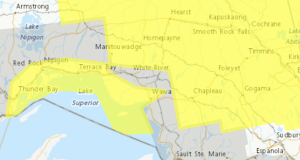Last month, the Finance Minister began a 30-day consultation period to examine Beijing’s trade practices in the electric vehicle (EV) sector, with the goal of determining whether Canada should follow suit with the U.S. and the EU in applying trade tariffs on Chinese imported EVs. This comes as the U.S. has recently applied a 100 percent tariff, and the European Union applied up to a 37.6 percent tariff, on Chinese-manufactured EVs.
So why is this happening, and should Canada follow our closest trading partners in applying tariffs on Chinese-made EVs? The basic argument is that China is purposely oversupplying EVs for their own domestic market, with the express objective of selling those oversupplied vehicles in foreign markets. This undermines domestic vehicle production and import from countries that we have trade agreements with.
The issue, according to our largest trading partners and the Finance Minister herself, is that the oversupply, coupled with pervasive subsidization of the supply chain and necessary components, non-existent labour or environmental standards that other trading partners would abide, give China an unfair advantage in world markets. This, as well as national security concerns about the influx of Chinese high tech, means there may be a case to be made for applying tariffs if Chinese-made EVs are intentionally being overproduced for foreign markets like our own.
This concern isn’t just theoretical. China went from being an almost non-existent player in the EV market in Canada, with a total import of $84.5 million in 2022, to an astounding $2.2 billion in imports in 2023, a massive increase that now makes them the second-largest EV producing nation operating in Canada. This is a challenge because, for years, the government has been directly involved in investments towards EV, battery, and battery component manufacturing projects along with the provinces, with the promise that it will result in billions more in return. Stellantis, Ford, Honda, and Volkswagen have all received some infrastructure funding or tax incentives to set up shop in Ontario. China flooding the market with cheap EVs becomes a challenge to those Canadian manufacturers, undermines those investments, and will hurt workers. While the Federal government has launched the consultation, provincial leaders seem to be the loudest voices calling for tariffs that would match or exceed U.S. tariffs on Chinese imports.
The obvious appeal of Chinese-imported EVs is that they are cheap, particularly coupled with the Incentives for Zero-Emission Vehicles (iZEV) Program that provides up to a $5,000 rebate on eligible EVs in Canada. For consumers, affordability is always going to be a concern. The government has stated that they hope to see EVs account for one-fifth of all new vehicles sold by 2026, 60 percent by 2030, and 100 percent by 2035. If they are to achieve that goal, there needs to be both the infrastructure to handle it, and the vehicles themselves need to be affordable. Many people will be anticipating the response from the 30-day consultation, including auto workers, industry insiders, environmental advocates, and consumers, to see what the government intends on doing with cheap Imported Chinese EVs and whether it will have a significant impact on the future of the market.
If the government does intend on applying tariffs to those vehicles, can the government achieve its stated EV goals while protecting our homegrown vehicles? Certainly. But it would likely mean incentives for Canadians buying Canadian-made EVs, as well as EVs from our closest trading partners. New Democrats have been pushing the government to adopt higher rebates for Canadian EVs to match those the US has in place for their domestic market, which provides up to $7,500 in rebates. That would be a win for auto makers, a win for drivers, and a win for the environment.
- Reflecting on the Challenges and Accomplishments of 2024 - December 19, 2024
- Carol Hughes – CRA Hack Needs a Thorough Investigation - November 13, 2024
- Carol Hughes – Is it Time to Get Tougher on Residential School Denialism? - November 5, 2024
 Wawa-news.com Local and Regional News
Wawa-news.com Local and Regional News

